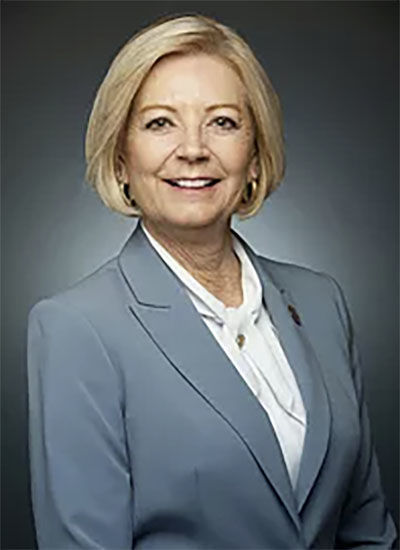PHOENIX — The global fight over climate change spilled over into the Arizona Legislature Wednesday as a Senate panel voted to forbid cities from telling developers they cannot erect new buildings that use natural gas.
The 4-3 vote by the Senate Committee on Natural Resources and Energy on SB 1222 came amid lobbying by business interests that argued that any move to deny access to natural gas would harm economic development.
There also was a particular argument from Dan Bogert of the Arizona Restaurant Association that cooks and chefs prefer natural gas because it comes on instantly and heats the side of the pans. He also said it’s less expensive.
That statement drew derision from Sen. Juan Mendez, D-Tempe.
“Is it your position that climate change, global warming, all that’s just way too hard and expensive and that because we like to cook a certain way we should just keep maintaining this process even though it’s bad for the environment and our future?” he asked.
“What the restaurant association’s position is that we should continue to have a choice to access the fuel types that we need to have accessed,” Bogert responded. He said the law as is leaves that choice of gas or electric up to each business.
Senate President Karen Fann said her legislation is a preemptive strike.
The Prescott Republican said there are communities in California, Massachusetts and Washington that, in the name of reducing greenhouse gases, have prohibited the use of natural gas in new construction and adopted all-electric building codes. And absent some state mandate, she said, local communities here could follow suit.
“I do not believe this is a function of a municipality,” she said. “If we are going to have that conversation we should have it on a statewide level because it doesn’t affect just that municipality. It affects everybody.”
Sandy Bahr, president of the Arizona chapter of the Sierra Club, said Fann is right in arguing that issues of energy policy and climate change are best dealt with by the state as a whole.
“The bottom line is the state is not doing that,” Bahr said. “So why limit local government?”
Southwest Gas lobbyist Matt Ligourdi told lawmakers that killing new natural gas hookups as a solution to climate is misfocused.
“We’re not here to hide from the environmental side of this,” he said. Ligourdi said his company helps private companies convert their fleets from diesel to compressed natural gas, sharply reducing pollutants.
And Ligourdi said only 4% of carbon emissions each year in the United States comes from natural gas, compared with transportation in the 30% range and electric generation where carbon emissions rate in the high 20% of greenhouse gases.
Mendez said that 4% figure is misleading because it does not count the emissions that occur from “fracking,” the process of injecting water, sand and other chemicals into shale to release natural gas.
“We don’t frack,” Ligourdi responded, saying Southwest Gas is simply a distributor. That answer didn’t satisfy Mendez.
“What you’re using is fracked somewhere,” he said.
Committee members also heard from others who talked about greenhouse gas emissions. That included Robert Bulechek, an energy consultant, who argued that lawmakers concerned about the economy need to consider what he said is the $14 billion cost of climate-related disasters like fires, drought and floods.
“We know, science knows, that climate destruction caused by burning fossil fuels puts our prosperity at risk,” he said.
But Sen. Sylvia Allen, R-Snowflake, sees the issue in a different way.
“There are many people that do not believe in man-caused climate change and in the fear tactics that have been put out there that is driving us to go away from things that are necessary to keep our economy strong,” she said. Allen said she prefers the views of “the scientists that are not paid by the U.N. who are giving us this faulty information.”
Allen also said she finds it interesting that at one time environmental interests promoted natural gas as a better environmental alternative than coal.
“And, lo and behold, now, today, natural gas seems to be a problem,” she said.
Sen. Frank Pratt, R-Casa Grande, openly worried what would happen to the power plants and other industries in his district that use natural gas.
“We have people that want to destroy that structure, that infrastructure that exists,” Pratt said.
“The goal is not to destroy the infrastructure,” Bahr responded, pointing out that any new city rules would apply only to new construction. “The goal is to address climate change and to keep the planet inhabitable for all of us.”
Sen. David Gowan, R-Sierra Vista, expressed his own skepticism about claims of climate change.
“In the ’70s we were saying ‘global cooling,’ through the ’80s, ’90s we were saying ‘global warming,’” he said. “But neither one were right so now we say ‘climate change.’”
Gowan said the issue for him is “capitalism and what we need to do to make sure that people have efficient and affordable utilities.”
But Sen. Andrea Dalessandro, D-Green Valley said she believes climate change is here “and we should be applauding any public body that wants to reduce their contribution to the global crisis.”
And Sen. Jamescita Peshlakai, D-Window Rock, said she could not vote for anything that would tie the hands of local governments and their residents.
Bahr also said such legislation is unnecessary in Arizona, saying neither she nor her organization have plans to ask cities here to follow suit. But that didn’t satisfy Sen. Sine Kerr, R-Buckeye, who suggested that really doesn’t answer the question of what the Sierra Club might do in the future.
“I would never say never,” Bahr responded. “We’re trying to limit the use of fossil fuels.”
The measure now needs full Senate approval.





